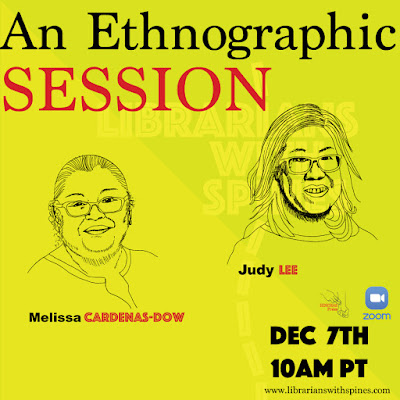[Please share widely!] Please join us! Greetings Friends! We hope you and yours are safe and well. Hinchas Press and Librarians with Spines presents another stimulating session to help you through the pandemic! Please join us in an engaging conversation about ethnographies, scholarship, identity, books, culture and more! Librarians with Spines editors, Yago Cura and Max Macias, Librarians with Spines Designer/Art Director Autumn Anglin Interview Judy Lee and Melissa Cardenas-Dow about their amazing work. Judy and Melissa wrote an amazing chapter in Librarians with Spines Vol. 2 called: LWS2 - Remembering Consciousness is Power: Working to Center Academic Library Outreach in the Service of Social Justice, Asian and Pacific Islander American Ethnic Visibility, and Coalition-Building December 7th, 2020 10am PST on Zoom! Please register for free here: https://www. librarianswithspines.com/post/ remembering-consciousness-is- power-an-ethnographic-session- with-judy-lee-and-meli...



